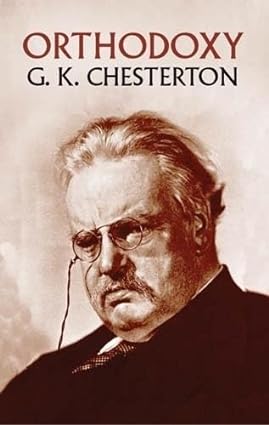This week we are reading through Chapter 4, the “Ethics of Elfland”. In the first three chapters, Chesterton sets forth the reasons for his writing this book and reviews the various prevailing modern systems of thought against which he writes. This week he begins explaining what he came to believe and how this belief was the heart of Christian Orthodoxy.
A few weeks ago, Linda Dehmer told me that she was happy that we were reading through and discussing an adult book since she had spent the last 40 years reading and discussing stories with four-year-olds. In this Chapter, however, Chesterton argues that the stories that Linda has read to her four-year-olds are more reasonable and more true than any book written for an adult. He says that we need to change our perspective from one of laws and necessity to an attitude based upon wonder and gratitude. It is this attitude that will permeate C.S. Lewis’ Narnia Chronicles.
In the chapter, Chesterton makes five points to elaborate on his theory of wonder and gratitude as follows:
1. The world does not explain itself. It is at first glance astonishing, even in its regularities.
2. The world is like a work of art. It has a meaning.
3. The world is beautiful and admirable in its design despite its defects.
4. The proper form of thanks for the world is some form of humility and restraint. (Doctrine of Conditional Joy.)
5. In some way all good is a remnant to be stored and held sacred out of some primordial ruin.
An explanation and elaboration on each of these points is found in the attached outline from Dr. Freddoso.
And they were bringing children to him, that he might touch them; and the disciples rebuked them. But when Jesus saw it he was indignant, and said to them, “Let the children come to me, do not hinder them; for to such belongs the kingdom of God. Truly, I say to you, whoever does not receive the kingdom of God like a child shall not enter it.” And he took them in his arms and blessed them, laying his hands upon them.
Mark 10:13-16

